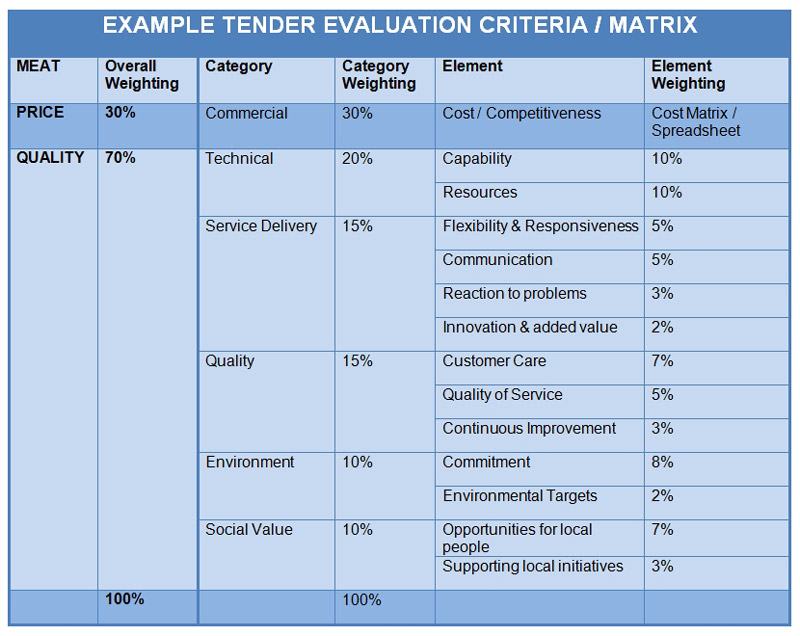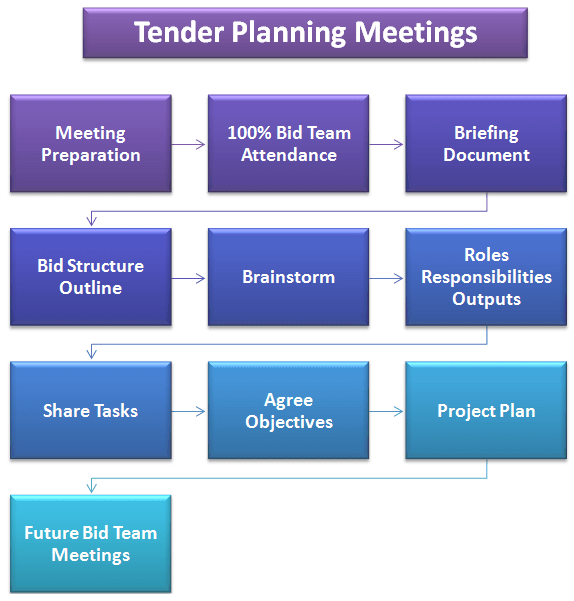Understanding Tender Evaluation Criteria
Tender Evaluation Criteria and Tender Evaluation Methodology
Understanding the Tender Evaluation Criteria and Tender Evaluation Methodology is a vital part of the Bid Manager’s toolkit. Using them can help you to qualify the tender opportunity and improve your score.
Tender Evaluation Criteria
PQQs and tenders will often include a guide on how they are marked. Below is an example tender evaluation criteria or matrix. It shows a tender evaluation using weighted criteria:

They all look different and criteria differs depending on each customer’s needs. The scoring can range from simple percentage splits to complex weighting systems. But the basic principles of tender evaluation criteria remain the same.
…Understanding Tender Evaluation Criteria Read More »




